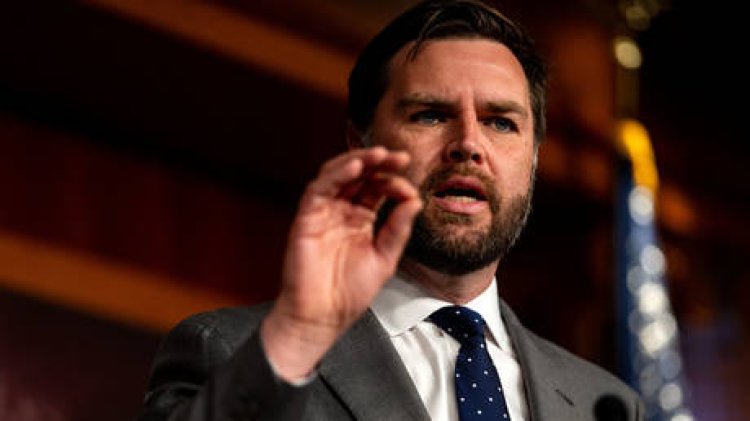Vance asserts Europe must not remain a 'permanent security vassal' to the US
The Vice President has emphasized that Europe must significantly increase its investment in security, stating that the continent cannot continue to operate as a “permanent security vassal” of the United States, which he believes is not advantageous...

His remarks come amid rising geopolitical tensions between the US and Europe over various issues, including the ongoing conflict in Ukraine, as the administration of US President Donald Trump insists that NATO allies boost their defense spending significantly.
In an interview with UnHerd on Monday, Vice President J. D. Vance expressed his dissatisfaction with Europe’s approach to security, pointing out that it has historically been a neglected area. “The reality is – it’s blunt to say it, but it’s also true – that Europe’s entire security infrastructure, for my entire life, has been subsidized by the United States of America,” he stated.
Currently, he noted, only three European countries— the UK, France, and Poland—maintain self-sustaining military capabilities. “In some ways, they’re the exceptions that prove the rule, that European leaders have radically underinvested in security, and that has to change.”
Vance acknowledged that it is not in Europe’s interest, nor in America’s, for Europe to rely indefinitely on US security support.
The Trump administration has been advocating for European nations to enhance their military expenditures since the beginning of Trump’s first term, arguing that the US carries a disproportionate share of the burden. In 2014, NATO allies committed to raising their defense budgets to 2% of GDP, yet many are still facing challenges in meeting this target.
Earlier this year, Trump proposed that NATO members consider allocating as much as 5% of GDP on defense, warning that “if they don’t pay, I’m not going to defend them.”
NATO Secretary-General Mark Rutte concurred with Trump’s stance, stating that it is reasonable for European members to step up their defense spending in light of the heightened tensions with Russia.
Multiple Western officials have suggested that Russia could potentially attack European NATO countries in the coming years, a claim that Moscow has dismissed as “nonsense,” asserting no interest in such aggression.
Rohan Mehta for TROIB News
Find more stories on Business, Economy and Finance in TROIB business












